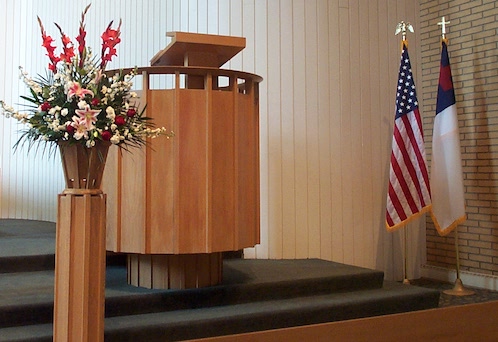
As Religious Freedom Week comes to a close, a survey captures a striking result: Fewer Americans are committed to the right of religious liberty, yet Protestant pastors are less concerned about the issue than they have been in years.
The paradox comes in a recent poll from Barna Research.
The good news is that 55 percent of Americans strongly agree with the statement: “True religious freedom means that all citizens must have freedom of conscience, which means being able to believe and practice the core commitments and values of your faith.”
The bad news is that five years earlier, 69 percent agreed.
At the same time, the percentage of believing Christians who disagree with that definition tripled.
Christians’ commitment to freedom fell even as their concerns that things are getting worse rose. The number of people who said religious liberty has declined increased 10 percent in as many years.
Yet the survey showed that clergy had shifted their focus. The percentage of Protestant pastors “very concerned” about religious liberty fell from 55 percent in 2014 to 34 percent in 2017.
Barna notes that it would be “incorrect to assume a total lack of concern among Protestant pastors. Most simply shifted away from being ‘very’ concerned to being ‘somewhat’ concerned.”
Still, the number of pastors who are not too worried about threats to religious liberty increased by two-thirds.
A misguided optimism may have caused clergy to disengage, because the worst danger seems to have passed. That optimism cannot withstand serious scrutiny.
The kingdom of Heaven is not coterminous with the United States of America.
Despite welcome improvements, religious oppression persists around the world – and concerning specters haunt the U.S.
Proposals for single-payer health care threaten to drive Christian providers out of medicine.
The Equality Act would extend that intolerance to every area of economic activity.
Churches and Christian institutions that hold to traditional Judeo-Christian morality may lose their tax-exempt status and see their ministries shuttered by lack of resources.
The drive for the federal government to subsidize “health care” could compel believers to finance activities they find sinful.
And, notwithstanding robust conscience rights exemptions that President Trump has added by administrative fiat, the HHS mandate still exists. Those who live by the pen and phone may die by the pen and phone.
Religious liberty is the Constitution’s first freedom, the nation’s raison d’etre, and the basis for the West’s cherished value of tolerance. It inhabits a pivotal part of our culture and determines whether diverse groups of people live in peace or constantly vie against one another for the right to wield the scepter.
There is no more appropriate group to proclaim the right to conscience than clergy, its chief beneficiaries.
There is no more appropriate time to defend this hard-won liberty than when the calendar turns the page from Religious Freedom Week to the 243rd anniversary of a nation uniquely dedicated to the proposition that all people are created equal and endowed by their Creator with certain inalienable rights.
The lamp of liberty always needs trimming.
(Photo credit: Kaishu Tai. This photo has been cropped. CC BY-SA 3.0.)

